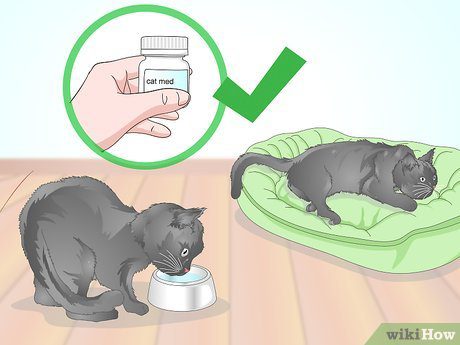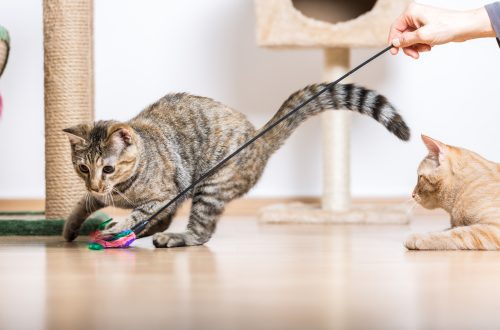
How to know if a cat has a fever
When your pet is unwell, she cannot ask for painkillers or an ice pack to heal. So you may be wondering, “Does my cat have a fever? And how can I understand what is? Learn about the symptoms, causes, and treatments for a high fever in a cat.
Symptoms
There are clear signs of high fever in humans, and these same symptoms are seen in cats. For example, lack of appetite, weakness or lethargy, shaking, dehydration, or ears warm to the touch. In addition to a rapid heart rate and/or rapid breathing, the animal may show other symptoms of an illness that can cause a high fever, depending on what ailment your furry friend is having.
What temperature should a cat be?
The most definitive way to tell if your cat has a fever is to take her temperature. The body temperature of a cat is normally between 37,5 and 39,2 degrees Celsius. Temperatures above this range indicate fever

Ear thermometers are simpler and more convenient for pet owners, but as Petcha explains, “The best and most economical way to take a cat’s temperature is with a pediatric rectal glass or digital thermometer. To measure the temperature of a cat at home, two people are needed: one to hold the pet, and the other to insert a thermometer. Be sure to lubricate the thermometer with petroleum jelly and wait at least two minutes after inserting it to get the most accurate result. Do not insert the rectal thermometer too deeply as the rectal tissue is sensitive and you may injure the animal. Also, never use a mercury thermometer because if it breaks, it can be very harmful to the cat’s health and life.
While not the most attractive or convenient method, measuring rectal temperature is the best way to answer the question of whether your pet has a fever. If you are uncomfortable doing this yourself, contact your veterinarian to take her temperature. It’s also important to have your cat’s vaccination history so that the veterinarian can get information about any other diseases your cat may not have been vaccinated against to narrow down the cause of her fever.
Causes
If you are certain that your cat has a fever (or, to use the medical term, hyperthermia), your veterinarian will determine if further testing is needed to determine the cause. Knowing the animal’s medical history will help a lot here. If you are forced to go to a different primary care physician than one who already knows your pet, be sure to provide documentation of the medical history, especially a list of medications, as sometimes cats have a bad reaction to certain medications.
Like humans, there are many possible causes of fever in cats. The most common is a bacterial infection. Other likely causes are problems with the immune system or inflammation, exposure to toxins, a disorder, or some kind of disease. It may be that the cause of a cat’s fever cannot be determined, in which case you and your veterinarian can discuss how to proceed.
Treatment
In addition to resting and drinking plenty of fluids, antibiotics are commonly used to treat fever in cats. Getting a cat to take medication, as well as taking his temperature, is not easy, but very important. If he spits out the pill or doesn’t eat the cat food you hid it in, use VCA Hospitals’ excellent tips on giving pills to your pet. One is to wrap the animal in a towel for comfort and safety. It would be nice to get an assistant to cope with this non-trivial task.

In some cases, your veterinarian may recommend liquid pyrexia medication, which is easier to give.
It’s not easy to watch your furry little one suffer from a fever, but beyond the health care instructions your veterinarian has given you, there are some things you can do to keep the illness from developing. Regular grooming (teeth cleaning, nail trimming) and periodic checkups (ear checks, monitoring of her eating and drinking habits) will help lay an excellent foundation for a healthy life for your pet.
And don’t forget to hug the cat. A little love will help your pet get well soon!





